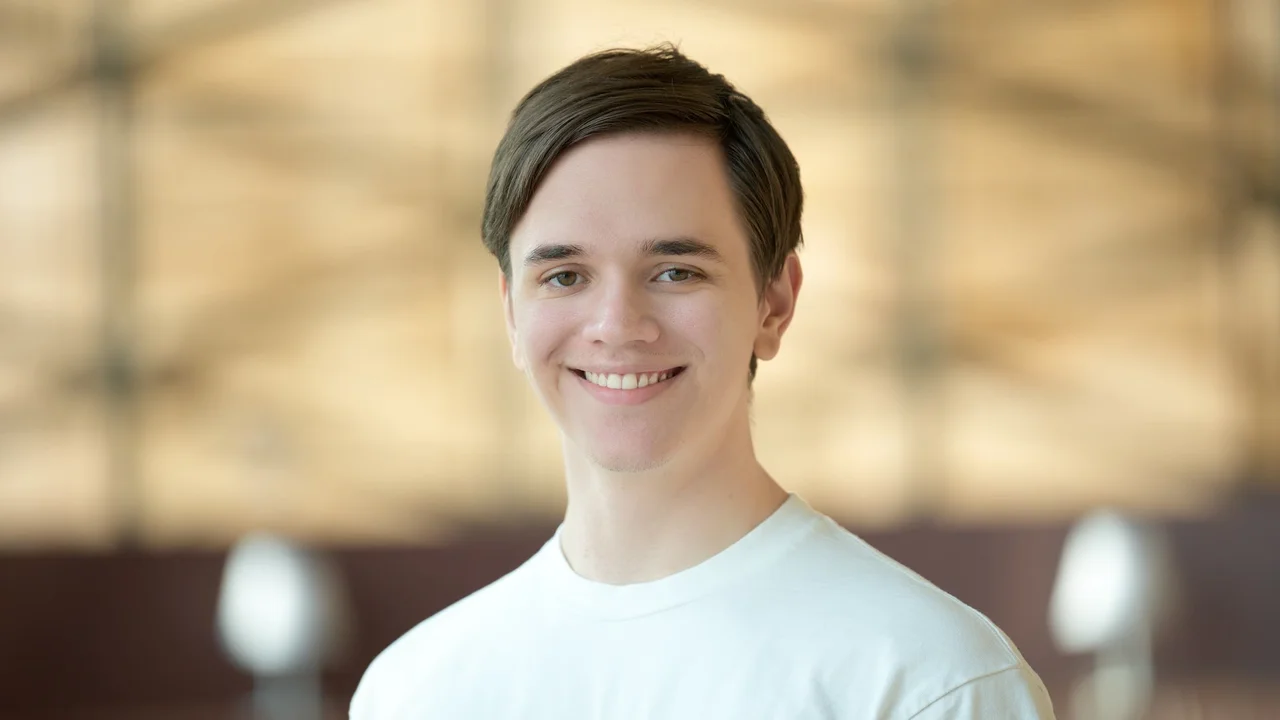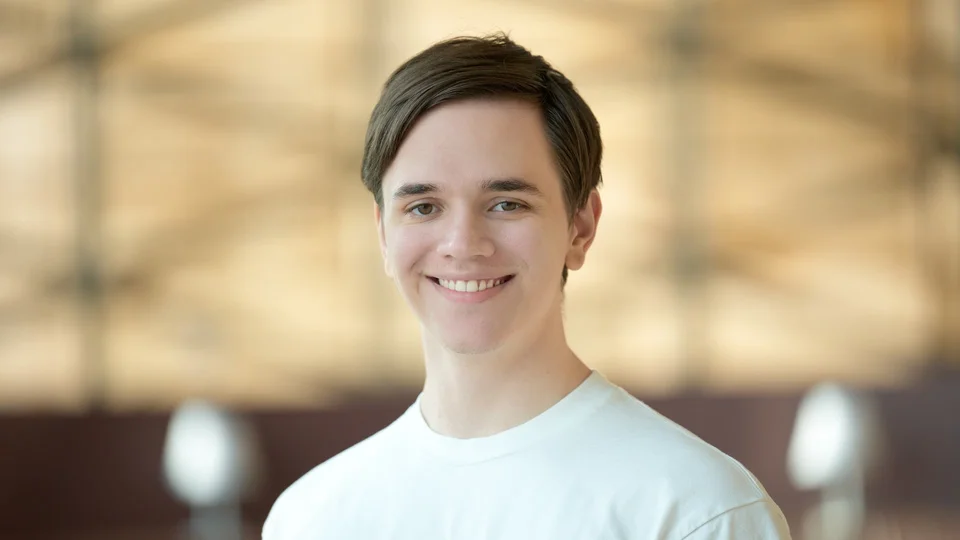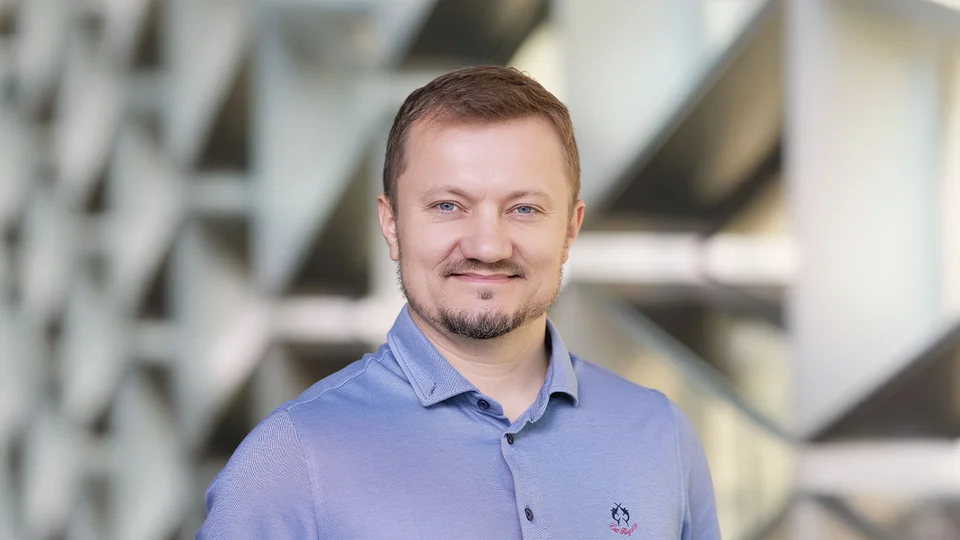
KAUST CS student recognized with AAAI Outstanding Program Committee Award
Konstantin Mishchenko, a Ph.D. student under the supervision of Professor Peter Richtárik, has been selected as one of the Association for the Advancement of Artificial Intelligence’s (AAAI) 12 Outstanding Program Committee Members for 2020. Mishchenko was presented with a certificate in recognition of his outstanding service at AAAI-20 held in New York from February 7-12.
About
By David Murphy
Konstantin Mishchenko, a Ph.D. student under the supervision of Professor Peter Richtárik, has been selected as one of the Association for the Advancement of Artificial Intelligence’s (AAAI) 12 Outstanding Program Committee Members for 2020. Mishchenko was presented with a certificate in recognition of his outstanding service at AAAI-20 held in New York from February 7-12.
The computer science student was nominated for the award due to his exceptional care, thoroughness, and thoughtfulness in the review and discussion of assigned peer papers. Mishchenko’s recognition is all the more impressive, considering he was selected from a broad pool of reviewers across all levels of seniority, including professorship.
“The number of reviewers for AAAI is overwhelming—over 6,000—and among them were professors and research scientists from companies like Google Brain. I am extremely flattered to be selected in such a tough competition,” he noted.
“Since only a few people ever know any reviewers’ identity, it is very tempting to spend as little time as possible when reviewing papers. After all, each paper gets assigned three to four people, so no one assumes full responsibility, and one might hope that the others will do the work,” Mishchenko stressed.
“However, I have been on the other side of this process and know how frustrating it is when reviewers do a poor job of reading and assessing the quality of one’s work. When I was reviewing, I invested a significant amount of time on each paper and did my best to provide candid and constructive feedback.”
Creating problem-solving algorithms
At KAUST, Mishchenko is focusing on optimization methods for machine learning and stochastic and distributed algorithms for large-scale problems, and numerical methods. As modern machine learning approaches typically involve many data and parameters, researchers find it quite challenging to learn a computer model that understands a given dataset. It is at this junction where Mishchenko and his colleagues’ research in the KAUST Visual Computing Center (VCC) come to the fore.
“In the KAUST VCC, we perform a lot of theoretical work discovering fundamental principles of differentiable functions,” he explained. “Once we have an algorithm, we perform a “trial by fire” by comparing it to existing algorithms on real-world data. For instance, we developed several techniques that allow us to significantly lower the impact of lossy compression of long vectors when models are trained in a distributed fashion on a cluster.”
Why KAUST?
Before joining KAUST in the fall of 2017, Mishchenko was a research intern at Université Grenoble Alpes, where he worked with Franck Iutzeler and Jérôme Malick. This internship allowed him to obtain his dual degree M.Sc. diploma from École Normale Supérieure Paris-Saclay and Paris-Dauphine. It was at KAUST where Mishchenko believed an ideal environment existed for a successful Ph.D. in his area.
“Before joining KAUST as a Ph.D. student in September 2017, I declined an offer to join the École Polytechnique Fédérale de Lausanne (EPFL). This was not a straightforward decision as EPFL is an established university that frequently appears in the top 20 global university rankings. However, I believed prestige wasn’t everything, and it was much more critical for me to find a supervisor and university whose vision I can share.”
As an individual with unparalleled insight into the development of Mishchenko’s research career, Professor Richtárik is effusive in his praise of his exceptionally talented student.
“Konstantin is a brilliant young researcher. He has co-authored 18 highly technical and innovative papers in less than three years and will have written over 20 papers by the time he graduates. In some of these papers, he solved major open problems in the area of optimization for machine learning,” he emphasized.
Mishchenko is equally quick to laud the tremendous impact that Richtárik has had on the success of his Ph.D. “Peter is always willing to support me in most aspects of my academic work. I feel he’s invested a lot of effort into helping me to develop the necessary skills to become a successful researcher, and he has sought nothing in return. I am thrilled about the work that we’ve done together, and I am convinced we will continue collaborating long after I graduate from KAUST.”
“Looking back at how much KAUST has achieved in just ten years; I am incredibly enthusiastic about the subsequent research that will take place here. I am equally excited about the recent AI initiative that started after Tony Chan became the president. Right now, few people are working on AI at KAUST. However, since President Chan joined the university, the Machine Learning Hub was formed, several new seminar series started recently, and there are many exciting AI projects in the pipeline.”
“I want to continue building on our research; I want to learn more techniques and gain more skills and continue to push the boundaries of what machine learning and maybe even AI can do,” Mishchenko concluded.

